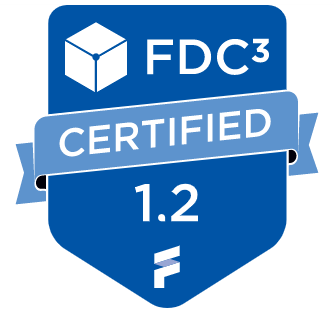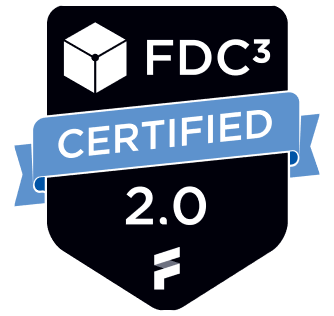FDC3 conformance
The aim of the FDC3 Standard is to make it possible for all the apps on a financial services desktop to seamlessly interoperate without the need for separate bilateral agreements or integration projects. Anyone that follows the Standard can join in, and communication between apps just works. Even more importantly, you're not tied to a single integration product (what FDC3 calls a 'Desktop Agent'). Instead, you can use any container or other product that also follows the Standard.
A standard is helpful only if everyone adheres to it exactly as spelled out. Otherwise, some parts of data exchange won’t work or will work differently, defeating the purpose of standardization. Adherence to the Standard is called conformance. Therefore, conformance defines how well a product or platform meets a given standard. But it is not enough that people say that their products conform; to inspire the confidence of the industry there needs to be some way of proving that conformance.
One way of providing proof is to test your product. However, it does matter who performs the testing. While it is possible to test your own product for conformance, it’s easy to misinterpret or overlook some aspect of the Standard. It’s far better for one entity to define and perform all the testing for everyone. This way, we can be sure that the tests are comprehensive and fairly applied. When everyone is held to the same standard, buyers can have confidence in the results.
For the FDC3 standard, the FinTech Open Source Foundation (FINOS), with our help and that of several other members of the FDC3 community, has defined a set of tests (known as the FDC3 Conformance Framework) that a platform such as Finsemble must pass before it can be certified as fully conformant to the FDC3 Standard. FINOS also provides a service that will perform the conformance tests for you, ensuring that they are fairly applied. A number of tests are provided free of charge to FINOS members, with a fee charged for additional tests or for all tests for non-members, see the FDC3 Conformance Program instructions for more details.
For platform conformance, the testing certifies the Desktop Agent implementation meets the requirements of the Desktop Agent API Part of the Standard (see https://fdc3.finos.org/docs/api/spec#desktop-agent-api-standard-compliance for more details). The Standard includes both the mandatory (MUST/MUST NOT) and non-essential (SHOULD and MAY) requirements. To be fully compliant, a Desktop Agent must satisfy all the mandatory requirements. However, if you're evaluating a Desktop Agent, don’t just ignore the non-essential requirements, particularly the recommended ones (SHOULD). These are intended to make using your software easier, and they could potentially become mandatory in the future. See the FDC3 compliance page on the FINOS website for more details.
On passing all the tests, the FINOS and the Linux Foundation awards the compliance badge that certifies the conformance of the Desktop Agent with the FDC3 Standard. We are proud to say Finsemble has earned both of the available badges, which you can see on our website and in our docs.

